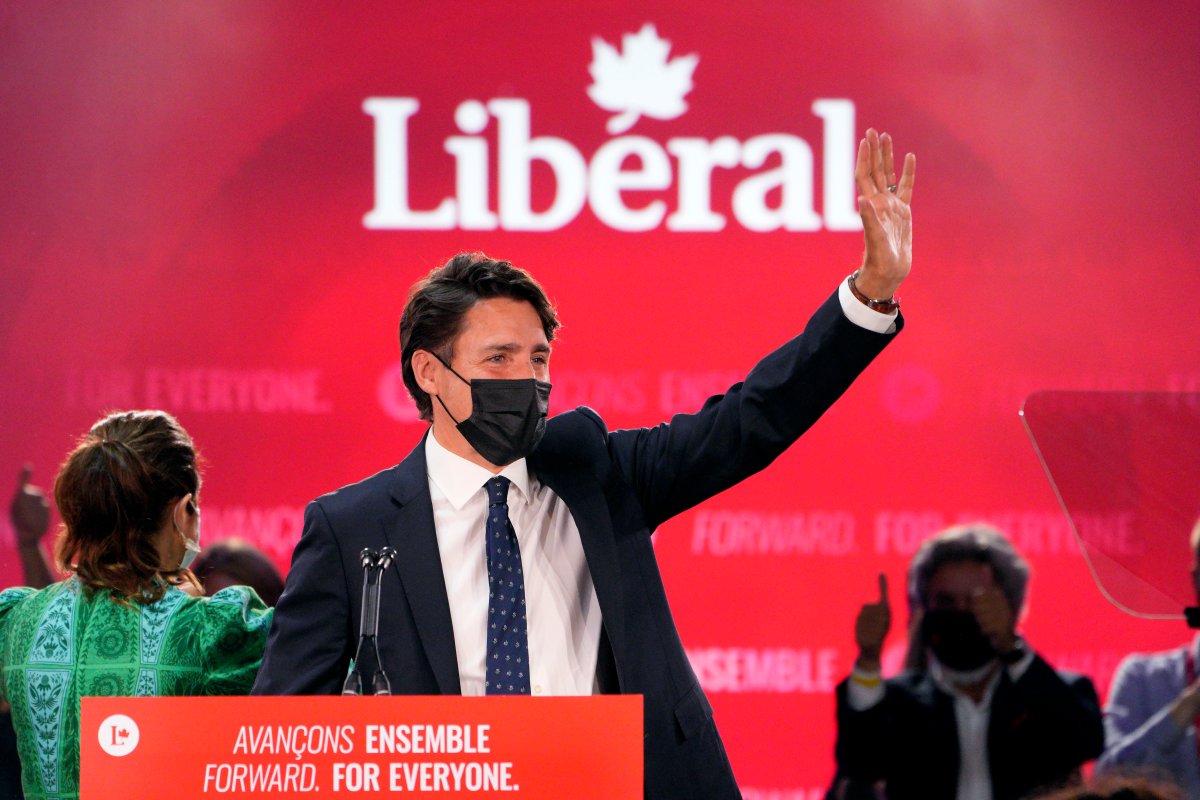By the time Brittany Anderson sat down Monday evening to watch the federal election results roll in, she had already spent the day dealing with one COVID-19-related challenge after another.

As owner of Laser City — a laser tag venue with two locations in Calgary and one in Edmonton — Anderson spent part of Monday shuffling staff schedules to accommodate employees waiting on COVID-19 test results and unable to come to work. She was also trying to figure out the ins and outs of Alberta’s new proof-of-vaccination restriction exemption program which came into effect Monday, and she had to deal with a number of cancelled bookings from customers who were either confused or upset about the province’s latest round of rule changes.
These are the kind of headaches that Anderson said made her relieved to see another Liberal minority government elected, if only because she wants to see politicians get back to work quickly on what she sees as the No.1 election issue — pandemic recovery.
“I’m pretty happy to see stability, and I hope this means more support for businesses like mine,” Anderson said Tuesday. “We’re all getting very tired and very burned out.”
It’s a sentiment that was echoed Tuesday by business groups across the country, many of whom said with the campaign in the rear-view mirror, it’s time for the federal government to refocus on helping small and medium-sized businesses emerge from the fourth wave of the pandemic currently sweeping most of the country.
- Calgary fatal stabbing victim ‘gave himself’ to help those fleeing war in Ukraine
- Alberta introduces legislation to reduce high power-bill fee surcharge for Calgarians
- Innovative nursing education: Mannequins lead the way in Alberta
- Calgary police looking for suspect in March southeast hotel homicide
“The hope here is that because not much has changed (politically), the transition period will happen quickly and we can get back to work,” said Todd Barclay, president and chief executive of Restaurants Canada. “Because every day, every week, every month that goes by is a critical time for us to deal with the significant headwinds that we’re dealing with.”
“All of the problems facing businesses that existed before the election, they’ve simply become more urgent,” said Perrin Beatty, president and chief executive of the Canadian Chamber of Commerce. “It’s time now for the politicians to set aside the political issues and focus on the real issues.”
Many business groups are calling for targeted support for hard-hit industries like travel, tourism and hospitality. The Liberal party promised during the campaign to extend the Canada Recovery Hiring Program — which was set to expire in November — until March of 2022. The program is meant to help employers with reopening by offsetting the costs of hiring more staff or increasing wages or hours for existing employees.

But advocates say the government also needs to extend its existing wage subsidy and rent relief programs for entrepreneurs who are still struggling to keep their heads above water. Anderson said Laser City has relied heavily on both of these programs, which are set to expire at the end of this month.
“A lot of businesses like mine are not ready for those supports to come off, because we’re not anywhere near operating at 100 per cent capacity yet,” she said. “Those programs have been incredibly helpful and we would not be here today without them.”
“It would be tragic, having brought people this far, to have them drown 50 feet from shore,” Beatty said. “We have to get them successfully to the shore, not with across-the-board subsidies, but with targeted measures to help those who genuinely need it. How long that will be necessary, I don’t know.”
The food service industry is also asking for partial debt relief for government-backed loans. Restaurants Canada says eight out of 10 food service operators have taken on debt due to the COVID-19 crisis.
Barclay said the restaurant industry needs help too with an ongoing labour shortage made worse by COVID-19. It wants immigration programs expanded to help restaurants fill job vacancies, and a targeted stream within the Temporary Foreign Worker program designed for food service employers.



Comments